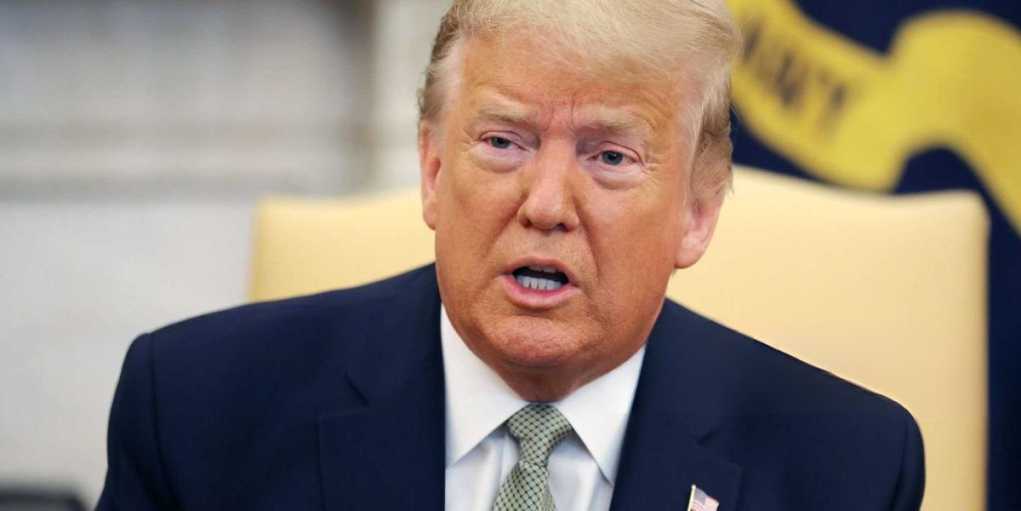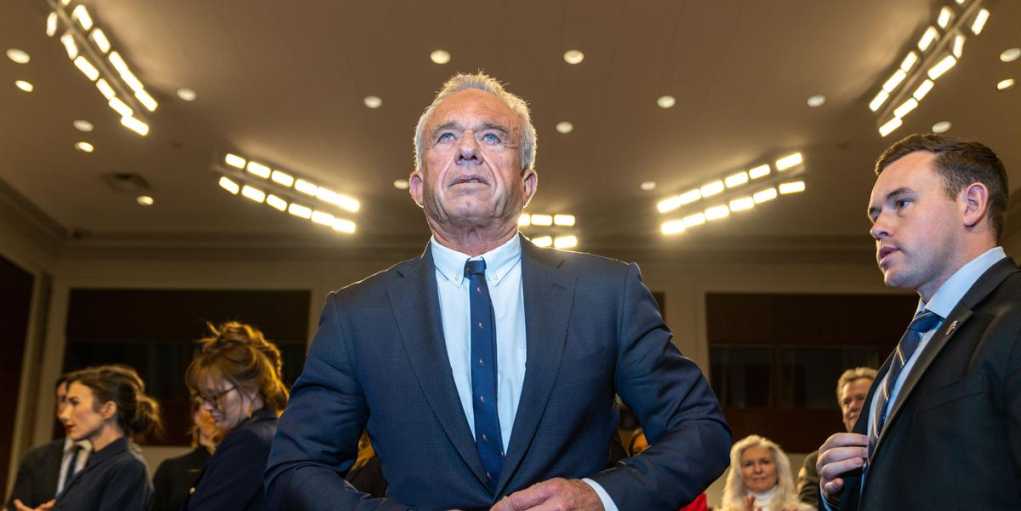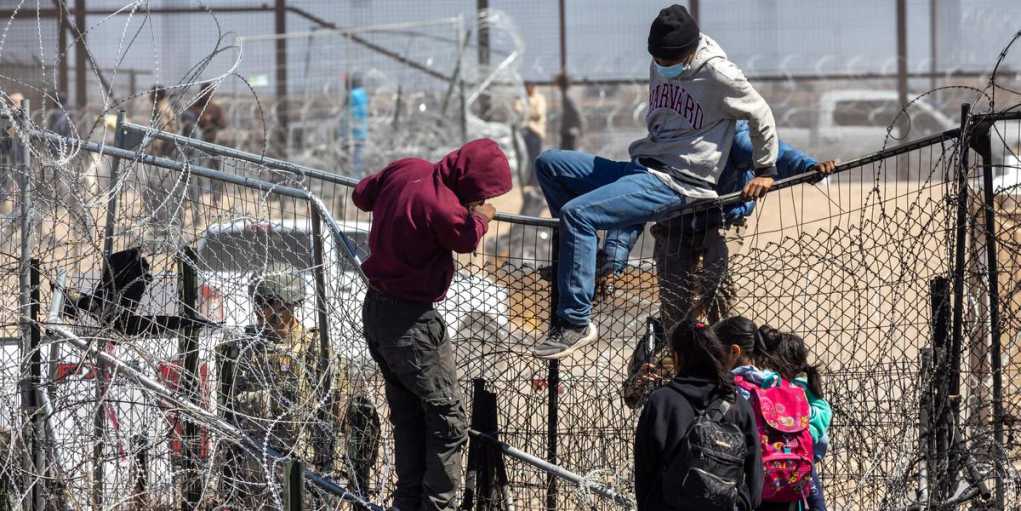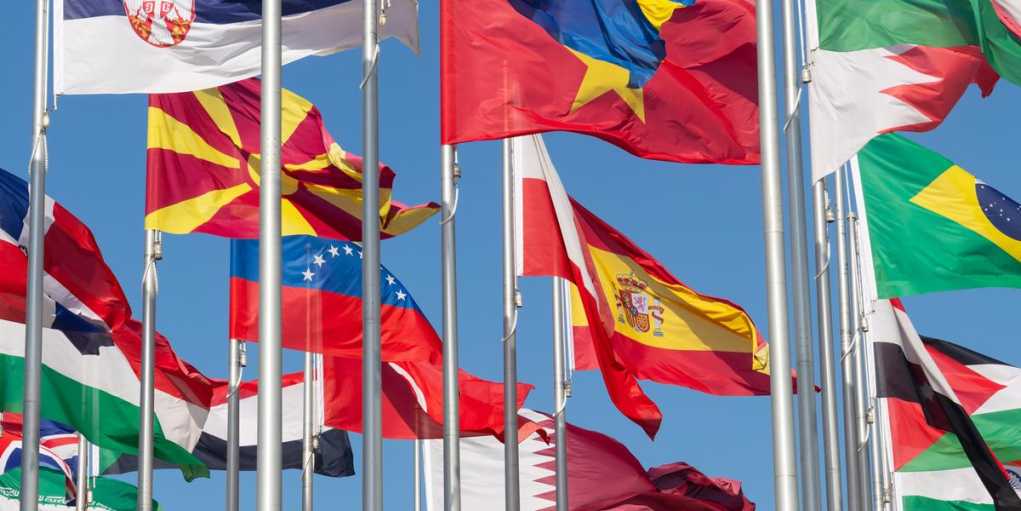Democrats Dare a Shutdown to Thwart Trump’s Agenda
Senate Democrats drew a line in the sand Wednesday. Their leader, Chuck Schumer, took to the Senate floor and made it clear. He’s rallying his troops to block the GOP’s stopgap spending bill, risking a partial government shutdown set to hit Friday after midnight. Conservatives say it’s pure sabotage. Schumer’s not mincing words. He signaled […]
RFK Jr. Ignites War on Toxic Food for America’s Health
Health Secretary Robert F. Kennedy Jr. kicked off a firestorm Monday, ordering food companies to strip artificial dyes from their products. In a closed-door Washington meeting with CEOs from Kellogg’s, Smucker’s, and General Mills, he demanded action, a move conservatives hail as long overdue. Melissa Hockstad, Consumer Brands Association CEO, captured the heat in a […]
Rosie O’Donnell’s Trump-Triggered Tantrum Hits Fever Pitch
Rosie O’Donnell lost it Tuesday, confirming she bolted from the U.S. to Ireland with her daughter just five days before Trump’s January 20 inauguration. In a TikTok video, the 62-year-old comedian whined it’s not “safe” under Trump—a nervous wreck conservatives say proves she’s gone off the rails. She’s not just fleeing—she’s groveling for Irish citizenship. […]
Trump Strong-Arms Ukraine into Peace Talks Surrender
President Trump’s muscle paid off Tuesday as Ukraine folded, agreeing to a 30-day ceasefire after U.S. talks in Saudi Arabia. Their Foreign Affairs Ministry’s joint statement with the State Department said they’re “ready to accept the US proposal” for an “immediate, interim” truce—pending Russia’s nod. This wasn’t Ukraine’s plan. Zelenskyy’s February 28 Oval Office clash […]
Tucker Carlson Unmasks Senator Stalling JFK Files Release
Tucker Carlson dropped a grenade Monday on “The Tucker Carlson Show,” accusing a Republican senator on the Senate Select Committee on Intelligence of sabotaging President Donald Trump’s administration. Speaking to NewsNation’s Chris Cuomo, he said this senator halted a January job hire to stop the full release of the JFK files. Carlson didn’t flinch on […]
Trump Turns CBP One into Self-Deportation Tool to Secure America’s Borders
President Trump’s Department of Homeland Security rolled out a game-changer Monday, unveiling the CBP Home app to replace the Biden-expanded CBP One. The old app let over a million migrants schedule entry at ports; now, it’s a tool for self-deportation, giving illegals a way to report their exit and preserve a shot at legal return. […]
Illegal Money Train Gets Derailed By Team Trump
President Trump’s team is delivering on promises to secure America’s resources for its citizens. The Small Business Administration announced Thursday a new rule mandating citizenship verification for loan applicants, ensuring no illegal migrants snag government-backed funds meant for American entrepreneurs. This move targets a system exploited under Biden’s lax oversight. SBA Administrator Kelly Loeffler laid […]
New Bill Will Protect America From Foreign Slights
Sen. Bernie Moreno, a legal immigrant from Colombia turned successful Ohio businessman, dropped a legislative bombshell this week. His two-page bill aims to ban foreign flags from flying on U.S. Capitol grounds, a direct shot at displays like Ukraine’s that have irked conservatives. He told reporters it’s about loyalty to America, not foreign nations. Moreno’s […]
Kid Rock Slams Democrats Before Trump’s Big Night
Kid Rock appeared on Fox News’ “Jesse Watters Primetime” Tuesday, just before President Donald Trump’s Joint Session of Congress address. Host Jesse Watters asked what stunts Democrats might pull during the speech, given their struggles against Trump’s momentum. Rock didn’t mince words with his reply. “Maybe just shut up, sit there, and learn something,” Kid […]
Musk and White House Slam Resigning DOGE Staffers as Quitters
Elon Musk and the White House fired back on Friday after 21 Department of Government Efficiency (DOGE) employees resigned, refusing to aid what they called a “dismantling” of public services, per a ZeroHedge report. The staffers’ exit letter, nabbed by the AP on February 25, sparked Musk’s scorn on X, branding it “fake news” and […]
RFK Jr.’s MAHA Revolution Unveiled: A Health Reckoning Begins
Del Bigtree, CEO of MAHA Action and MAHA Alliance, dropped a bombshell on Thursday, revealing Robert F. Kennedy Jr.’s radical plans to overhaul America’s failing health care system as Trump’s Secretary of Health and Human Services, per a Blaze Media report. Speaking on “Sara Gonzales Unfiltered,” Bigtree outlined Kennedy’s mission to tackle chronic illness, exposing […]
Hollywood Legend Gene Hackman and Wife Found Dead at Home
Authorities discovered Hollywood titan Gene Hackman and his wife Betsy Arakawa dead in their Santa Fe, New Mexico, home on Thursday, alongside their dog, prompting an active investigation that has conservatives mourning a legend of the silver screen, per Breitbart’s report. The Santa Fe County Sheriff’s Office confirmed the deaths of the 95-year-old Oscar winner […]
Trump Energy Plan Renewed – MAGA Is Back With A Vengeance
President Donald Trump issued a bold directive on Tuesday, demanding the construction of the Keystone XL pipeline—revoked by President Joe Biden in 2021—vowing to unleash American energy dominance, per a Breitbart report. Speaking at a Mar-a-Lago energy summit, Trump promised streamlined permits and American steel mandates, citing the project’s potential to create 42,100 jobs and […]
Bureaucrats Exposed for Using Government Resources To Spread Disgusting Propaganda
A shocking scandal has erupted, revealing that employees at the NSA, CIA, FBI, and other federal agencies spent government time discussing transgender fetishes, polyamory, and explicit personal matters on official communication systems, according to a Monday report by City Journal. The logs, obtained by whistleblowers, show intelligence community workers hijacking secure platforms like Intelink to […]
Trump Is Already Winning Against The Establishment Media
A federal judge handed President Donald Trump a major win on Monday, denying the Associated Press’ (AP) emergency motion to restore its full access to White House events, upholding the administration’s ban on the news outlet. Judge Trevor McFadden, a Trump appointee in Washington, D.C., ruled the AP’s exclusion from certain presidential events—like Oval Office […]
















